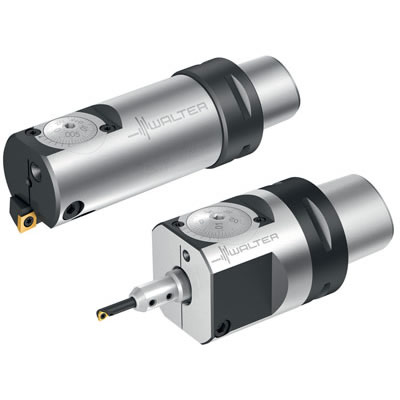B3230 Walter Capto Fine Boring Tool
B3230 Walter Capto Fine Boring Tool
Walter has introduced the B3230 Walter Capto fine boring tool.

Walter has introduced the B3230 Walter Capto fine boring tool. This flexible, single edge precision boring tool, available in diameters ranging from 0.078 to 7.992" with an adjustment accuracy of 0.0001" on the diameter, can be used for standard as well as reverse machining and features internal coolant supply up to the cutting edge. A range of indexable inserts adapted for precision boring is available for use with this new fine boring tool, allowing for optimal cutting parameters to be employed for each material.
Heightening the B3230's flexibility is the fact that it is available with the Walter Capto modular toolholding interface, as well as NCT and ScrewFit. Along with its high clamping force and even force distribution, the Walter Capto interface significantly enhances the new tool's versatility. That's because many of today's machine tools include a Capto interface as standard because Capto is the most universal of interfaces, suitable for turning, drilling, counterboring and precision boring, as well as for milling, in both rotating and static modes. With this unique interface system, all machining operations can be performed on lathes, machining centers and turn/mill centers.





